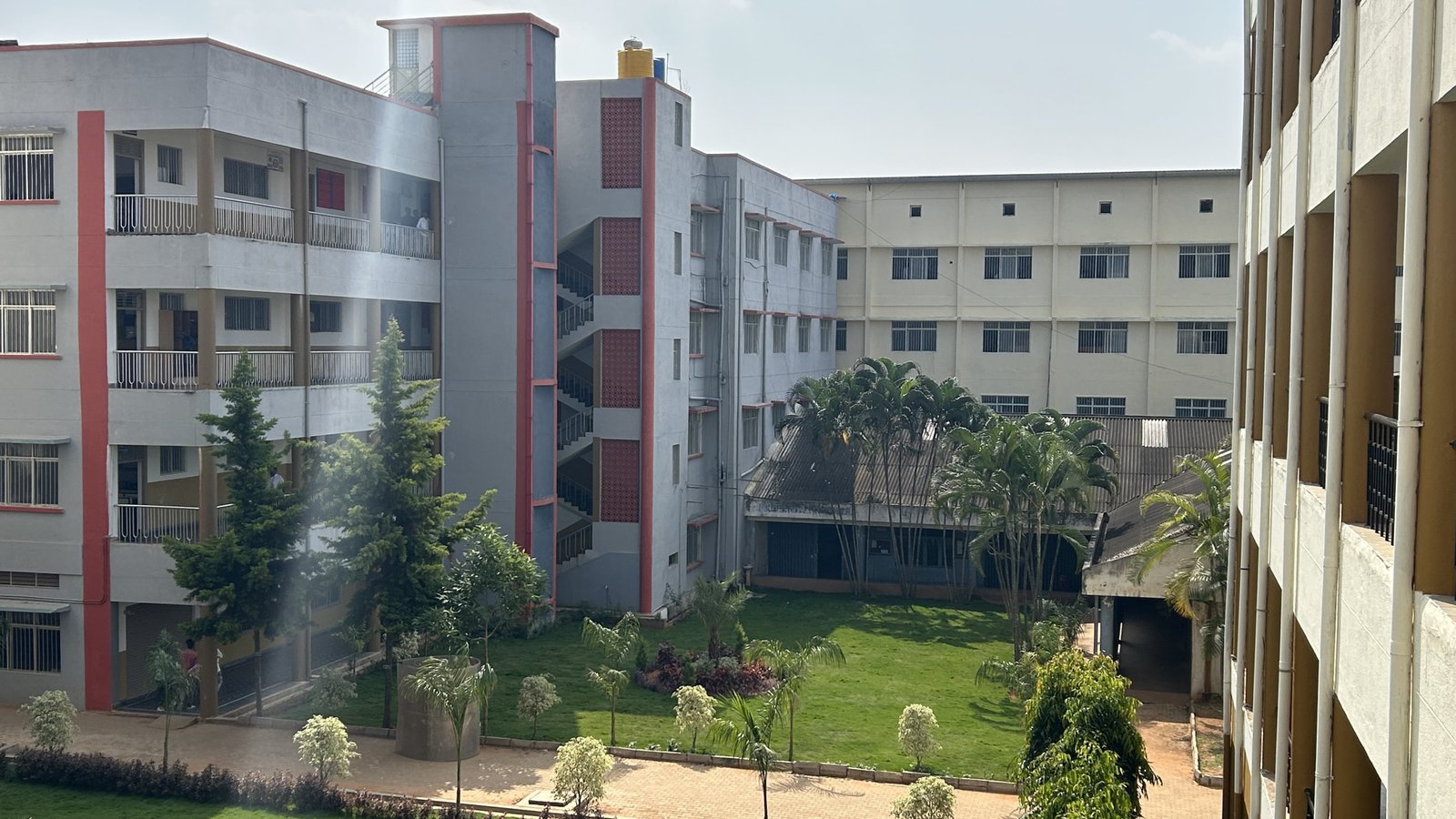The Department of Computer Science and Engineering (Data Science) is one of the Vital departments at RLJIT.The Department of Computer Science and Engineering (DS) was established in 2022 with intake of 60. The department is well equipped with Class Rooms with Modern Teaching aids, Computer Labs and Department Library.
The Department offers excellent opportunities for students to learn state-of-the-art technologies in Data science. The curriculum is designed to provide the depth of knowledge needed for a successful career in data science. It emphasizes practical expertise in applying the pertinent skills through courses like Foundations of Data Science, Principles of Programming, and Mathematics for Computer Science, Java Programming for Data Science, Python Programming for Data Science, Data Analytics with R, Data Analytics with Excel Discrete Mathematics, Regression and Statistical Computing, Optimization for Machine Learning, Big Data Analytics, Exploratory Data Analysis, Data Engineering & MLOps, Machine learning and Nature Inspired Computing. Depending on the need, students can anticipate the prominence in JAVA, Python and R programming.


Associate Professor & HOD Dept., CSE(DS), RLJIT
The Department of Computer Science and Engineering (Data Science) at R. L Jalappa Institute of Technology was established in 2022 with 60 students.This department is staffed with highly qualified faculty members who hold postgraduate degrees and doctorates. These educators are not only experienced but also dedicated and motivating.
The faculty members have made significant contributions to academia by publishing research papers in reputable national and international journals and conferences. Moreover, they actively participate in and organize National and International conferences, workshops, and Faculty Development programs. This commitment to continuous learning ensures that they acquire new skills and knowledge to meet global standards.To enhance the teaching-learning process, the department boasts smart classrooms equipped with modern facilities like projectors and CCTV cameras. The department is well-equipped with comprehensive lab facilities, including a project lab featuring over 60 advanced computer systems, to meet academic requirements.
In summary, the Department of Computer Science and Engineering (Data Science) at R. L. Jalappa Institute of Technology is dedicated to providing a high-quality education that aligns with global standards, fostering an environment where students can excel in their academic pursuits.
M1: To craft the students with novel and intellectual skills to capability in the field of Data Science.
M2: To consecrate to build professionals with social-virtuousness attitude and implementing innovative Teaching and Learning methods.
PEO1: Graduates will have Prospective careers in the field of Data Science.
PEO2: Graduates will have good Leadership Qualities, Self Learning abilities and Zeal for higher Studies and Research.
PEO3: Graduates will follow Ethical Practices and exhibit high level of Professionalism by participating and addressing Technical, Business and environmental challenges.
PSO1: Students will able to solve the real life problems faced in the society, industry and other areas by applying the skills of Data Science.
PSO2: Students will have the knowledge of Software, Hardware, Algorithms, Modelling Networking and Application Development.
PSO3: Students will have the ability to develop computational knowledge and project development skills Data Science Techniques.
1: Engineering knowledge: Apply the knowledge of mathematics, science, engineering fundamentals, and an engineering specialization to the solution of complex engineering problems.
2: Problem analysis: Identify, formulate, review research literature, and analyze complex engineering problems reaching substantiated conclusions using first principles of mathematics, natural sciences, and engineering sciences.
3: Design/development of solutions: Design solutions for complex engineering problems and design system components or processes that meet the specified needs with appropriate consideration for the public health and safety, and the cultural, societal, and environmental considerations.
4: Conduct investigations of complex problems: Use research-based knowledge and research methods including design of experiments, analysis and interpretation of data, and synthesis of the information to provide valid conclusions.
5: Modern tool usage: Create, select, and apply appropriate techniques, resources, and modern engineering and IT tools including prediction and modeling to complex engineering activities with an understanding of the limitations.
6: The engineer and society: Apply reasoning informed by the contextual knowledge to assess societal, health, safety, legal and cultural issues and the consequent responsibilities relevant to the professional engineering practice.
7: Environment and sustainability: Understand the impact of the professional engineering solutions in societal and environmental contexts, and demonstrate the knowledge of, and need for sustainable development.
8: Ethics: Apply ethical principles and commit to professional ethics and responsibilities and norms of the engineering practice.
9: Individual and team work: Function effectively as an individual, and as a member or leader in diverse teams, and in multidisciplinary settings.
10: Communication: Communicate effectively on complex engineering activities with the engineering community and with society at large, such as, being able to comprehend and write effective reports and design documentation, make effective presentations, and give and receive clear instructions.
11: Project management and finance: Demonstrate knowledge and understanding of the Engineering and management principles and apply these to one’s own work, as a member and leader in a team, to manage projects and in multidisciplinary environments.
12: Project management and finance: Demonstrate knowledge and understanding of the Engineering and management principles and apply these to one’s own work, as a member and leader in a team, to manage projects and in multidisciplinary environments.
The department is well equipped with laboratory facilities like the Data Structures, Algorithm Laboratory and the Machine Learning Laboratory. These laboratory facilities play a crucial role in providing students with hands-on experience and practical exposure to the concepts and technologies taught in the classroom. The laboratory is equipped with 65 computer systems with the necessary software tools required for implementing and testing academic laboratory experiments.
Data Structures and Algorithm Laboratory: This lab is designed to help students understand and implement various experiments of data structures and algorithms, and also Ability Enhancement Courses with practical approaches. It provides an environment for students to practice coding, analyze the efficiency of different algorithms, and solve complex problems.
Machine Learning Laboratory: The Machine Learning Laboratory is dedicated to providing students with practical experience in developing and applying machine learning algorithms. The lab is equipped with powerful computing resources and software tools for tasks such as data pre-processing, model training, and evaluation. Students can work on real-world datasets and projects to gain insights into machine learning techniques, experiment with different algorithms, and evaluate their performance.